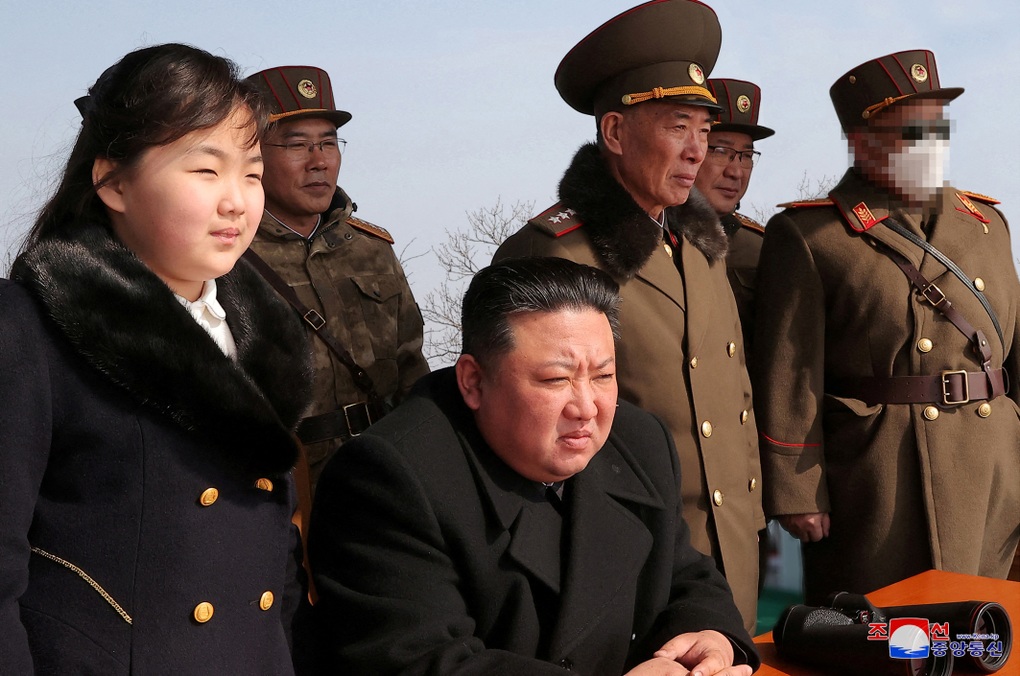In a dramatic and escalating statement, North Korean leader Kim Jong Un has declared that if the United States intervenes militarily to support South Korea against North Korea, his regime will take extreme actions that could “send America back to the Stone Age.” This bold threat underscores the deep tensions in the Korean Peninsula, which has long been a flashpoint for global security concerns.

A History of Tensions
Tensions between North Korea, South Korea, and the United States have simmered for decades, dating back to the Korean War in the 1950s, which ended in an armistice rather than a peace treaty. This has left the two Koreas technically at war ever since, with the U.S. maintaining a strong military presence in South Korea as part of a mutual defense agreement.
Over the years, North Korea’s pursuit of nuclear weapons and ballistic missile technology has been the primary source of concern for the U.S. and its allies. Kim Jong Un’s regime has often used aggressive rhetoric, threats, and missile tests to assert its power and deter potential threats, particularly from South Korea and the U.S.

Kim’s Latest Warning
Kim Jong Un’s latest declaration is seen as an attempt to raise the stakes in the ongoing power struggle on the Korean Peninsula. The language about sending America “back to the Stone Age” echoes Cold War-era threats of massive destruction, reminiscent of mutually assured destruction (MAD) scenarios involving nuclear weapons.
North Korea has previously threatened to unleash its nuclear arsenal if provoked, and Kim’s regime has demonstrated increasing capabilities in long-range missile development. The North Korean leader’s statement is widely interpreted as a warning of possible nuclear retaliation or cyberattacks that could cause massive disruption to U.S. infrastructure and technology, bringing the nation to a halt.
U.S. Response and Global Reactions
The United States has yet to formally respond to Kim’s latest statement, but it has traditionally reaffirmed its commitment to defend South Korea under any circumstances. U.S. military officials have expressed confidence in the country’s defense systems and ability to counter any potential North Korean aggression.
Global reactions to Kim’s threat have been mixed, with many nations calling for calm and dialogue. China, a key player in the region and a traditional ally of North Korea, may be pressured to intervene diplomatically to de-escalate the situation. Meanwhile, South Korea continues to bolster its defenses, preparing for any possible scenario.

The Potential for Conflict
Although Kim Jong Un’s threat is alarming, it is not the first time North Korea has issued extreme warnings to its adversaries. However, the situation remains dangerous, as miscalculations or provocations could lead to unintended military escalation. Analysts worry that North Korea’s increasing nuclear capabilities combined with unpredictable leadership could push the region to the brink of conflict.
Diplomatic efforts by various countries, including past negotiations between the U.S. and North Korea, have had limited success in reducing tensions. Kim’s latest warning serves as a reminder of the volatile situation in the Korean Peninsula, where any military action could have devastating global consequences.
Conclusion
Kim Jong Un’s declaration that the U.S. will face catastrophic consequences if it aids South Korea is part of North Korea’s ongoing strategy of saber-rattling and intimidation. While it remains unclear what specific actions North Korea might take, the threat of nuclear or cyber warfare is a sobering possibility. As the international community watches closely, the stakes for peace and stability in the region—and beyond—remain as high as ever.





